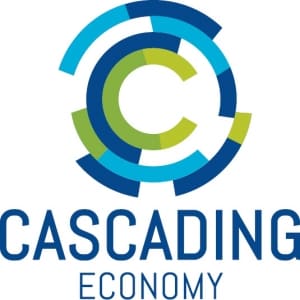What is Material Flow Management in Innovation & Sustainability Consulting?
The aim of material flow management (MFM) is to shift the focus from a single environmental consideration or a single substance to entire material flows and to consciously influence these flows. Material flows represent the course of a substance from its origin to its disposal. This influence has an economic, ecological and social motivation.
- Economic Objectives:
In the economic sense, the main aim is to reduce costs by reducing the consumption of energy and materials. Other aspects include increasing competitiveness, reducing environmental and liability risks, safeguarding production processes and using financial assistance. - Ecological Motivation:
With the help of MFM, sustainability consulting helps to ensure that materials are used more efficiently and resources are conserved. MFM makes a positive contribution to problem areas of environmental protection, such as greenhouse effects, acidification of soil and water or the input of toxic and ecotoxic substances into the environment. - Social Aspects:
Social aspects such as the creation and safeguarding of regional jobs are a high priority. Sustainability consulting is strongly oriented towards the living environment and working conditions, while MFM shows potential reductions through optimised environmental conditions.
Through the process of MFM, the possibility is created to use resources and materials more efficiently and to construct sustainable cycles (Cascading Economy) in order to counteract the current environmental situation from a business perspective. This process therefore contributes to the company analysis and enables sustainable management, which includes all procedures and processes and creates something new out of them.
Table of Contents Material Flow Management:
- What is Material Flow Analysis?
- Economic Objecives
- Ecological Motivation
- Social Aspects
- What Is Successful Material Flow Management & Material Flow Analysis?
- Material Flow Analysis as a Basis for Management
- The Next Step – Material Flow Evaluation
- Development of Strategies – Concrete Instructions for Action
- Why are Actors in MFM Important?
- Sources
What is Successful Material Flow Management & Material Flow Analysis?
Successful MFM requires sufficient information about the respective flows, a material flow analysis (MFA), as well as material flow evaluation and the development of strategies.
- MFA as a Basis for Management:
Before further steps can be taken, a material flow analysis of the substances and materials must be carried out. In contrast to the LCA, which primarily takes environmental impacts into account and is internationally standardised, the material flow analysis focuses on the paths and quantities of the flows.The analysis is based on services, products, processes or areas of need. The material flow analysis can then be illustrated with the aid of flow diagrams. - The Next Step – Material Flow Evaluation:
Material flow evaluation (MFE) considers the operationalisation (making measurable) of objectives: How can the objectives be observed and measured? Then indicators are recorded. These indicators are used to carry out a target-performance comparison. A further part of material flow evaluation is the definition of priorities for measures. - Development of Strategies – Concrete Instructions for Action:
The aim of MFM is to develop strategies. First a selection of measures or operations is made with the companies, followed by an impact analysis of the measures and finally an evaluation and decision on the measures is made.
Why Are Actors in MFM Important?
In material flow management, the holistic chain of actors (employees, suppliers, customers, visitors, etc) of a material flow is included in the process. The cooperation of actors is an essential component of successful management.
Through their actions and decisions, suppliers and producers exert direct influence on the course of the material flows. Our sustainability consulting creates win-win situations that make cooperation attractive for all partners. This also includes actors at more distant levels such as trade associations, banks and insurance companies as well as environmental and consumer associations.



